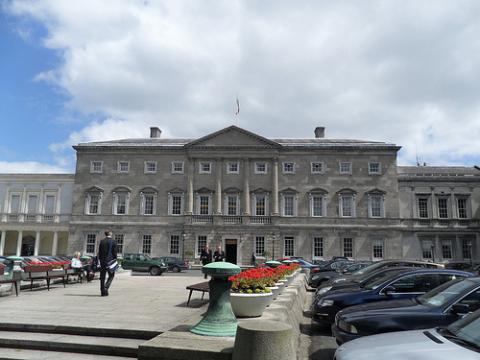This should not pass

The proposed amendment to the Constitution on the issue of Oireachtas inquiries carries with it an inherent menace. By Vincent Browne.
There is something important to be decided on Thursday week, October 27, but it seems that much of the electorate is set to sleepwalk into making a decision that could well do a great deal of damage.
This has nothing to do with the presidential election - although perhaps that matters a bit, and I will get to that next week. The important decision, rather, has to do with the proposed amendment to the Constitution on the issue of Oireachtas inquiries.
The problem with this is twofold. The first is that the terms of the amendment could be the instrument of gross abuse of a person’s reputation, privacy and other individual rights, which the courts might be unable to prevent.
The persistent obduracy of the government in dealing with concerns about this suggests a deliberate strategy to institute an arrangement that would prevent the courts defending the constitutional rights of citizens.
The proposed amendment is in three parts. The first simply says that the Dáil and Senate would have the power to hold an inquiry separately or jointly into matters of public importance. The second part says that such an inquiry would be entitled to make findings about the conduct of anybody.
It is the third section that contains the menace. It reads as follows: ‘‘It shall be for the House or Houses [of the Oireachtas] to determine, with due regard to the principles of fair procedures, the appropriate balance between the rights of persons and the public interest for purposes of ensuring an effective inquiry [into whatever is decided].”
The persistent refusal to insert words to the effect that, ultimately, the courts will have oversight of such procedures suggests that the government wants to keep the courts out of this altogether.
The courts might well determine that the wording of this section precludes them from having any say, for the section says that it is the Dáil and/or Senate that have the power to determine the balance between individual rights and an effective inquiry.
That, after all, is what the words say.
So, if this amendment is ratified by the people, anybody under investigation by an Oireachtas inquiry might be denied legal representation; might be deprived of the right to question those making allegations against them; might not have the right to be told in advance what those allegations were; and there might be nothing they could do about it.
Yes, there is the stuff about the principles of fair procedures, but what if an Oireachtas inquiry decided not to bother with them, or accord them only token acknowledgement, in the interests of getting the inquiry over quickly?
This should not pass. Aside from the inherent menace in this proposed constitutional amendment, there is no will to make our parliament properly functional, with real powers to hold governments to account. Remember all the stuff during the election campaign about reforming the political system, and the palaver about accountability?
It would be great if we had a functioning parliament that held the government of the day to account, and that was free to institute inquiries into anything - most crucially, into what the government of the day was up to - and to conduct such inquiries with fairness and impartiality.
But we do not have a functioning parliament. Instead of our parliament controlling the government, which is supposedly accountable to parliament, parliament is the creature of government. Our Dáil and Senate debate what the government decides they should debate. They meet when the government decides they should meet. They establish committees that the government decides they should establish.
The idea that a committee of the Dáil and Senate could have held Bertie Ahern to account over the alleged ‘‘dig-outs’’ he received while Minister for Finance is a fantasy.
It would not have happened for, as Taoiseach at the time of the inquiry, Ahern would have used the party whip system to stop it.
We all wish we could have inquiries that were expeditious and inexpensive, unlike the current tribunals which have proved vastly expensive and prolonged. But the alternative is not Oireachtas inquiries, as now proposed, for the Oireachtas is incapable of conducting impartial inquiries into anything connected with the government because the government can control such inquiries.
There is a way to deal with our dysfunctional parliamentary system, and it would entail another constitutional amendment, giving parliament immunity from government control. The idea is simply to incorporate into our Constitution what is already in the constitution - or Basic Law - of the Federal Republic of Germany.
Article 38 of the Basic Law states: ‘‘Members of the German Bundestag [the equivalent of our Dáil] shall be...representatives of the whole people, not bound by orders or instructions, and responsible only to their conscience,’’ which means no whips system, as we have here.
The German Basic Law also provides for investigative committees. Article 44 states: “[The Bundestag] shall have the right, on the motion of one quarter of its members, to establish an investigative committee, which shall take the requisite evidence at public hearings.”
Wouldn’t that be wonderful here? Irish governments might be accountable, even a little bit. But it won’t happen. No chance.
Image top: apanoply.
